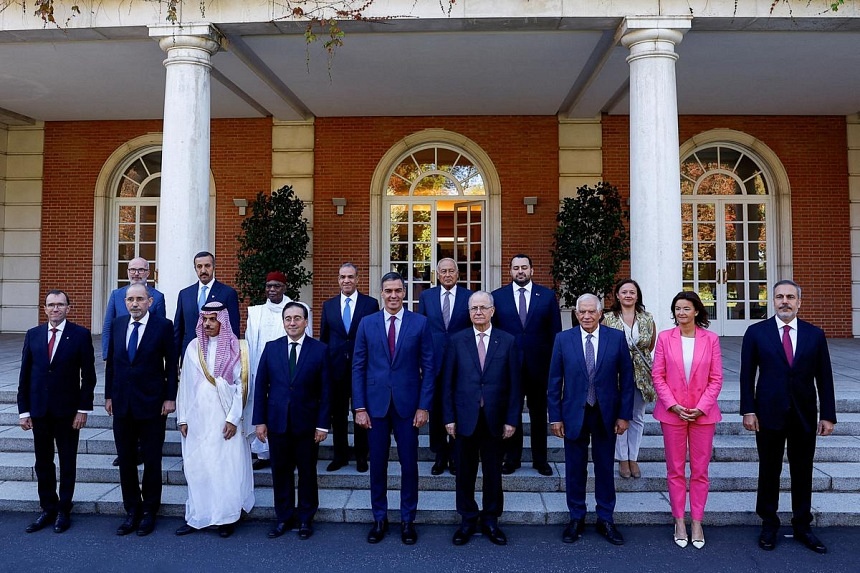MADRID - Spain, hosting a high-level meeting on Friday of several Muslim and European countries on ways to end the Gaza war, called for a clear schedule for the international community to implement a two-state solution to the Israeli-Palestinian conflict.
"We meet to make another push for the end of the war in Gaza, for a way out of the unending spiral of violence between the Palestinians, the Israelis... That way is clear. The implementation of the two-state solution is the only way," Spanish Foreign Minister Jose Manuel Albares told reporters.
In attendance were his counterparts including from Norway and Slovenia, European Union foreign policy chief Josep Borrell, Palestinian Prime Minister Mohammad Mustafa and members of the Arab-Islamic Contact Group for Gaza that includes Egypt, Saudi Arabia, Qatar, Jordan, Indonesia, Nigeria and Turkey.
Albares said there was "a clear willingness" among the participants, who notably do not include Israel, "to move on from words to actions and to make strides towards a clear schedule for the effective implementation" of a two-state solution, starting with Palestine joining the United Nations.
Israel was not invited because it was not part of the contact group, Albares said, adding though that "we will be delighted to see Israel at any table where peace and the two-state solution are discussed".
On May 28, Spain, Norway and Ireland formally recognised a unified Palestinian state ruled by the Palestinian Authority comprising the Gaza Strip and the West Bank, with East Jerusalem as its capital. With them, 146 of the 193 member states of the United Nations now recognise Palestinian statehood.
Spanish Prime Minister Pedro Sanchez has repeatedly described the co-existence of two sovereign states on the territory of the former Mandatory Palestine as the only viable path to peace in the region.
Such a two-state solution was set out in the 1991 Madrid Conference and the 1993-95 Oslo Accords, but the peace process has been moribund for years.
However, the search for a peaceful solution has been given new urgency by the 11-month-long war in the Gaza Strip between Israel and the Palestinian militant groups Hamas - the bloodiest episode yet in the overall conflict - as well as escalating violence in the occupied West Bank.
The West Bank, including East Jerusalem, was captured by Israel in the 1967 Middle East war and has been occupied ever since, with expanding Jewish settlements complicating the issue. Israel annexed East Jerusalem in 1980 in a move generally not recognised internationally.
Israel also says guarantees on its security are of paramount importance.
Norwegian Foreign Minister Espen Barth Eide has told Reuters the meeting also needed to discuss the demobilisation of Hamas - which controlled Gaza prior to the war - and the normalisation of ties between Israel and some other states, notably Saudi Arabia. REUTERS




